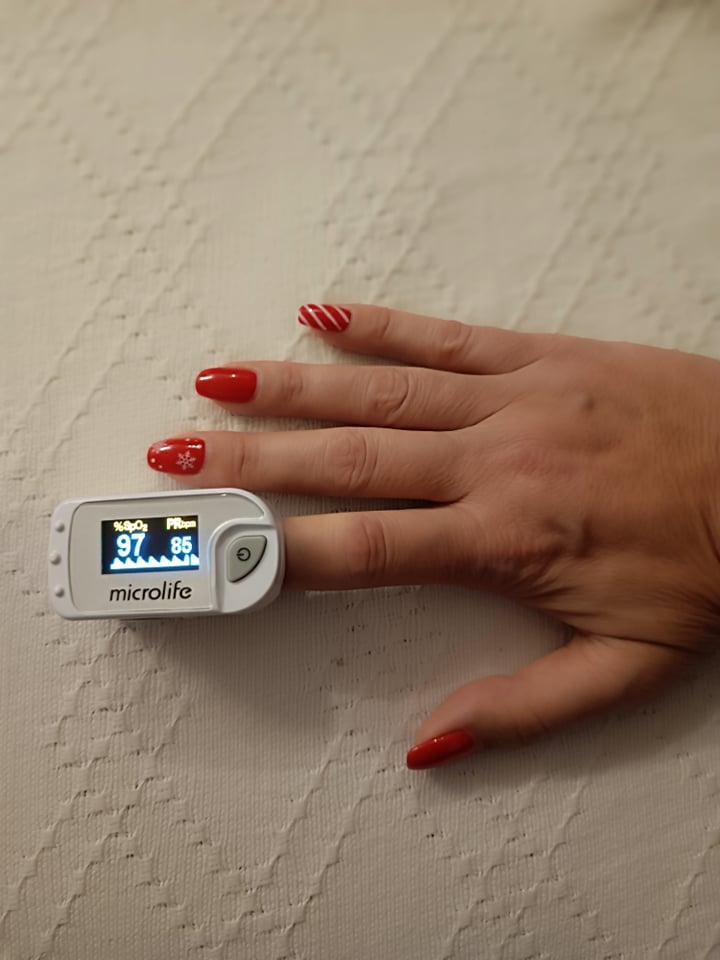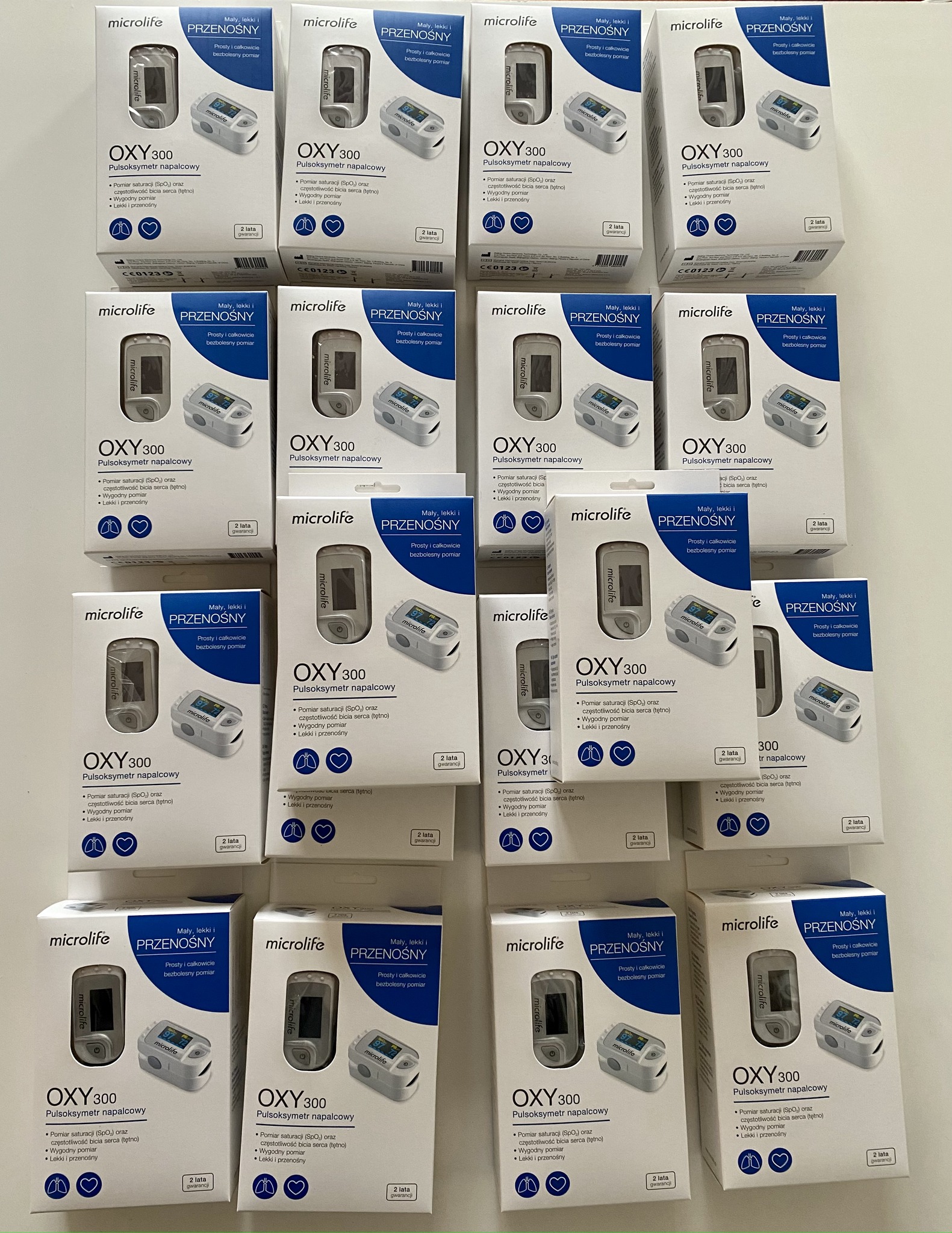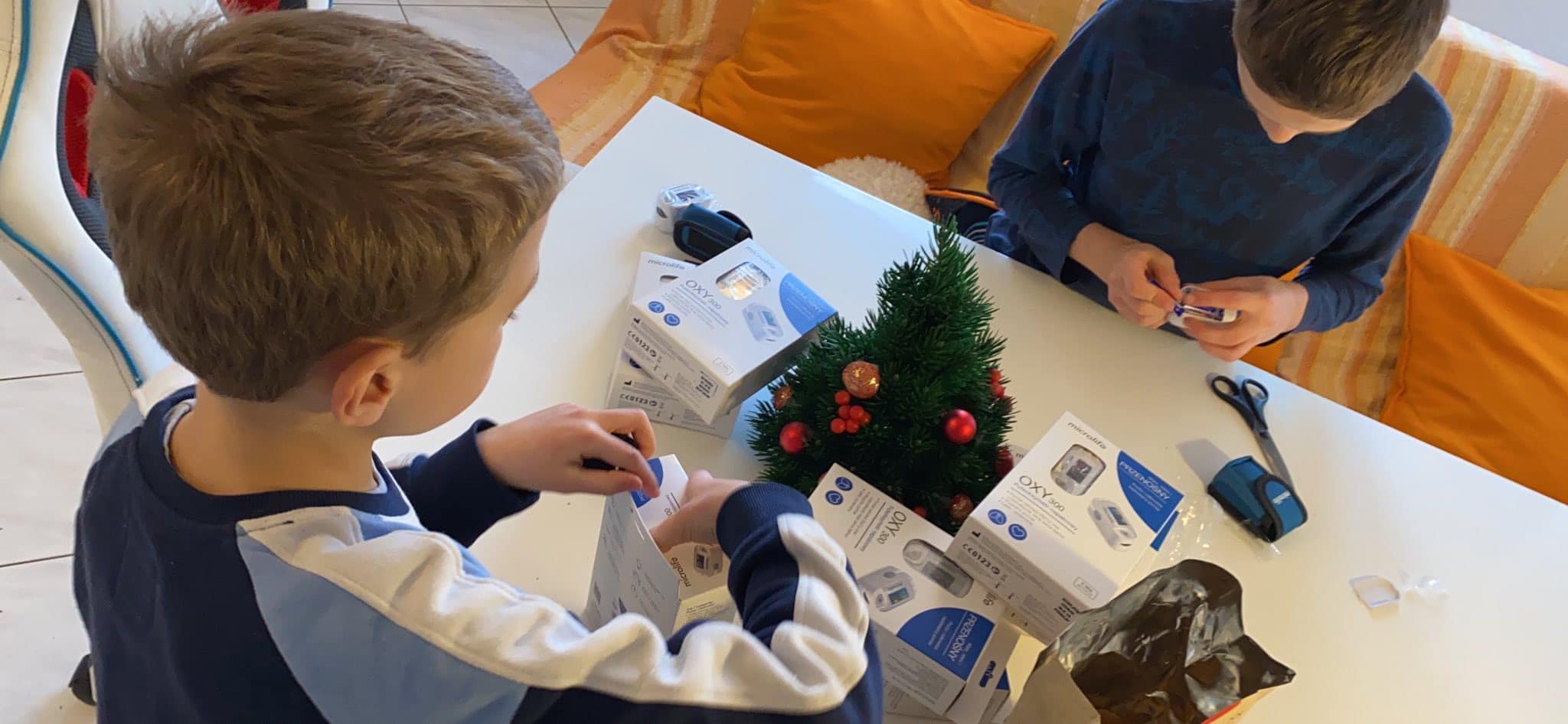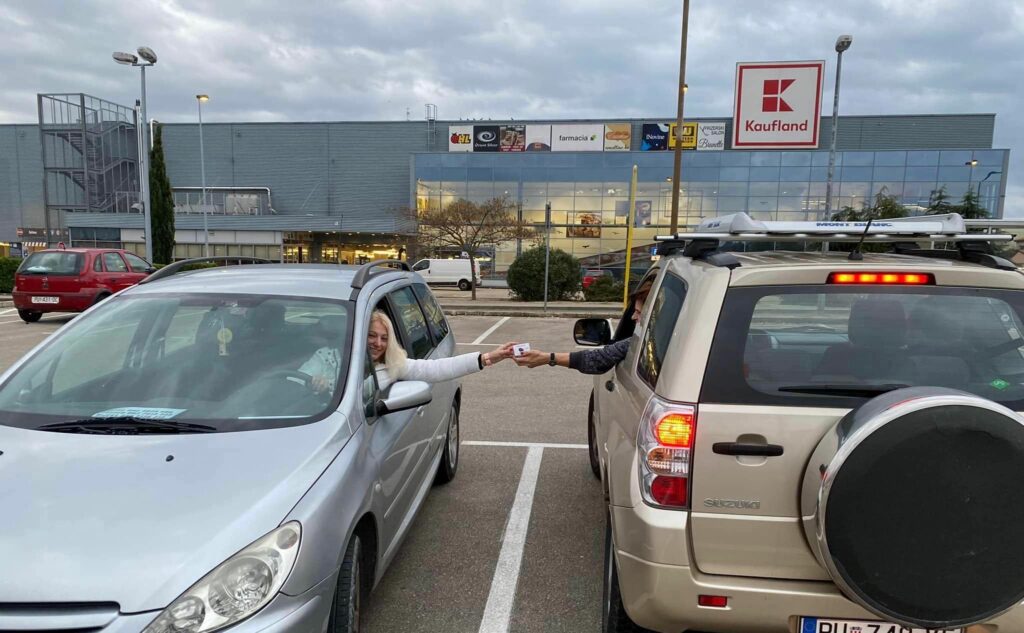The COVID-19 pandemic appears to be far from over, with the majority of the world population still suffering either from COVID-19 illness or from pandemic control measures. Finding ways to tangibly influence the situation can seem nearly impossible, and many have become pandemic fatigued. As communities grow weary from prolonged anxiety and a sense of powerlessness, how can we find ways to mobilize, protect and care for each other? An initiative from Croatia has done just that, saving lives with pulse oximeters and solidarity.

Kristina Mirković is one of the coordinators of the OXI initiative, which uses a mutual aid style of resource-sharing to bring medical devices (pulse oximeters) to people suffering from COVID-19.
“A friend of ours got really sick from COVID-19,” she explained. “He ended up in hospital when his oxygen levels were already really low, below 70. He barely survived and he is still walking around with an oxygen tank. A member of our group (Boris Stermotić) started researching on the internet to see how people could help themselves. We joined him and in many protocols from official health institutions, both in Croatia and abroad. We found that measuring oxygen levels in blood is very important. This simple procedure could save people from ending up on ventilators.”
Pulse oximeters are simple devices that measure oxygen saturation. They’re easy to use and operate, and are helpful for at-home monitoring. People can use the oximeters to measure their oxygens levels and go to the hospital on time, before they are so low that their lives are already in danger. The idea behind the OXI Initiative is to distribute oximeters to people in need for free.

Mirković says she doesn’t understand why doctors don’t explain the importance of oximeters to COVID patients and potential patients. “We all have thermometers at home and we all measure our own temperature. Why wouldn’t we use oximeters at home as well when we know that this is crucial to know how sick you really are?” questioned Mirković.
Mirković and the other core members of the initiative first began organizing with Tribe, an Adventure Club based in the Croatian coastal city of Pula. Before starting the OXI Initiative, they organized walks in nature and other similar activities. Their first 20 oximeters were purchased with money from the club’s members. With the help of donations from citizens, they were able to distribute over 100 devices to Pula and the entire region of Istria within two months. Now, their operations are also active in Rijeka and the capital of Croatia, Zagreb. Their plan is to cover the whole country eventually.

The group is active on social media where people can find mobile phone numbers of people to contact and call volunteers who will bring an oximeter device to their address. It usually takes 15 to 20 minutes from the moment a person contacts OXI for them to get a device.
“My doctor was on vacation when I [began to feel] worse,” said Dora Lipovčan, an actress from Zagreb, who is still recovering from Covid-19 and still uses OXI Initiative’s oximeters. “It was difficult for me to know…the moment to call the ambulance so the oximeter gave me some peace of mind. I knew that my oxygen level [was not] in the danger zone, so I felt much more secure,” she said.

When the oximeter is no longer needed, an OXI volunteer simply picks up the device, disinfects it, checks the batteries and prepares it for the next person in need.
“It is a wonderful feeling when you feel the gratitude of people,” says Maja Cetina, one of the volunteers from Pula. “Sometimes they give us chocolates, call us their angels or you just see it in their eyes. We don’t only give people the devices but also the feeling they are not alone in this. We bring them oximeters but we also check from time to time how they are doing which they don’t get from their doctors.”
Cetina, who works in one employment agency, has never volunteered before but felt the need to participate in this initiative after her personal experience with COVID-19.

“I got sick and my father got infected from me. I wasn’t hit that hard but my father barely survived, ending up in hospital with an oxygen level of 69%. We didn’t use an oximeter but…I realized how important this is,” says Cetina.
Like many places, cases of the Omicron variant surged in Croatia following the Christmas and New Year holidays. The OXI initiative hopes that distributing, informing and educating citizens about oximeters will relieve the pressure on the hospitals and intensive care units and lower the number of deaths.
“We received a call from my neighbors on December 31st,” explained Mirković. “The husband had 89% oxygen saturation. He ended up in hospital and received oxygen but he did not need the ventilator. If he waited, he would [have] probably needed it. People often don’t recognize that typical symptoms like tiredness, sleepiness could also mean that the oxygen levels in blood are dropping”.

Currently, OXI Initiative’s free oximeters have been used by more than 400 people. Of those helped, 150 of them asked for professional help after measuring saturation, and more than 30 people were saved from death. Mirković says the key to the group’s success and growing impact is solidarity.
“We showed that [we] can save lives, even when institutions are not efficient enough,” she concluded proudly.
The group’s positive impacts aren’t only felt by those in need. Volunteers, like Cetina, also gain a sense of community and personal power.
She says she plans to continue volunteering, even after the pandemic is over. Having once been hesitant about the time-cost related to volunteering, she now feels invigorated by seeing the impact her time contributes to her neighbors’ lives. “It is powerful to feel that you can actually do something, restore somebody’s smile,” she said. “And all it takes are small steps when there are enough people. Each of us spends maybe 15 to 20 minutes a day on this and the results are phenomenal.”
Check out these related articles and resources:
- How women-led mutual aid initiatives are strengthening the COVID-19 response
- How to start a mutual aid network in a pandemic
- 10 ways to share during the COVID-19 pandemic
- How people with disabilities are sticking together during COVID-19
- Lessons from the First Wave: Resilience in the Age of COVID-19 (free e-book)









